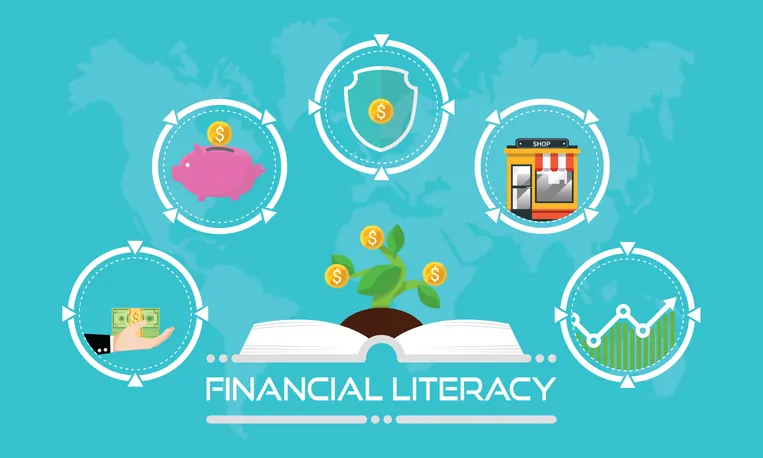Addressing the Financial Education Gap
Families, individuals, and businesses are facing significant challenges due to increasing public debt. The pressure to manage personal finances effectively is growing, especially for students dealing with rising education costs, consumer-driven society, and significant student loans. This article highlights the critical importance of financial education for students, offering insights into how they can successfully manage their finances.
The Significance of Financial Literacy for Children
Teaching financial literacy is crucial for helping individuals make informed decisions about their future and education. Given the high cost of tuition, it’s essential for children to learn money management skills early on. Understanding whether pursuing higher education is a sound financial decision is a vital part of this education. Here are some reasons why financial literacy is important:
Handling Debt
The current economic environment has left many people struggling with debt. With national debt exceeding $33 trillion and accounting for more than 123% of GDP, even governments are not exempt from financial strain. Homeowners, especially those burdened with high tuition costs, face significant financial challenges. Knowing when, how much, and from whom to borrow is essential. Financial literacy education equips individuals with the knowledge to make informed borrowing decisions, understand interest rates, and develop effective repayment plans.
Building Savings and Assets
Saving and investing are key to building and maintaining wealth. As Warren Buffet wisely advises, “Do not save what is left after spending; spend what is left after saving.” However, many students see saving as a luxury and are often more focused on spending. Financial literacy programs teach essential concepts like compound interest, diversification, and risk management, which are crucial for building a strong financial foundation.
Enhancing Consumer Awareness
The rise of e-commerce has introduced various marketing strategies and increased the risk of fraud. Special offers during sales events like Black Friday and Memorial Day can lead to impulsive spending and accumulating debt. The widespread use of credit cards exacerbates this issue. Financially literate individuals can make more informed choices, identify scams, understand the implications of credit card use, compare financial products, and make wiser purchasing decisions.
Developing Budgeting Skills
The saying, “Failure to plan is planning to fail,” highlights the importance of budgeting. Many students avoid planning their finances, which can lead to poor financial decisions. Whether earning money from part-time jobs or relying on family support, budgeting skills are essential. Financial education helps students track their expenses, develop responsible spending habits, and avoid unnecessary debt.
Fostering Entrepreneurship
Innovation drives the American economy, with over 31 million businesses operating nationwide. Due to a challenging job market, more university students and graduates are starting their own businesses. These entrepreneurs need strong financial management skills to succeed in a volatile industry.
Resources for Teaching Financial Literacy to High School Students
Teaching financial literacy to high school students can be challenging, but there are numerous resources available:
- Online Platforms: Websites like CashCourse and Khan Academy offer free courses on financial management.
- Books: Personal finance books, such as Robert Kiyosaki’s “Rich Dad Poor Dad,” provide valuable lessons.
- Budgeting Apps: Mobile apps are powerful tools for teaching financial management.
- Online Tutorials: Internet lessons and YouTube videos provide accessible financial education.
- Online Calculators: These tools help with complex financial calculations, such as mortgage payments and investment returns.
Engaging Activities for College Students
Interactive activities can make learning financial literacy engaging:
- Stock Market Simulators: These tools provide hands-on experience with financial markets.
- Financial Trivia: Quizzes on topics like investing, budgeting, and borrowing can be both educational and fun.
- Budgeting Exercises: Practical tasks involving bill payment and emergency savings help students develop financial skills.
Conclusion: Financial Literacy for the Future
Financial literacy is essential in today’s global economy. With rising debt levels, it’s crucial to educate students and young people on financial management. Empowering the next generation with financial knowledge and skills will enable them to navigate the complexities of personal finance and make informed decisions that positively impact their lives.

